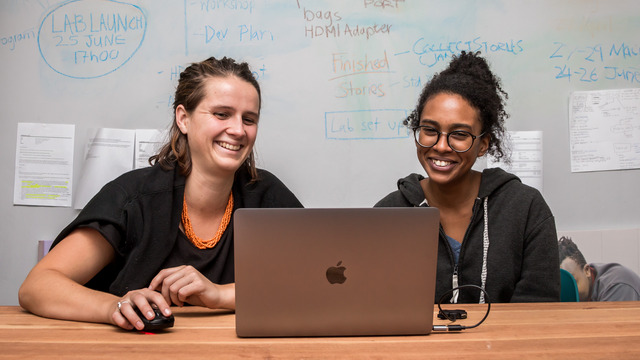
Rhodes University academics are now using digital storytelling as an assessment tool for service learning and to generate rich qualitative data. Rhodes University Community Engagement (RUCE), as a custodian of the Digital Storytelling (DST) project, has held workshops with various departments of the University in an effort to expose them to a variety of new opportunities.
DST is an approach to the ancient art of storytelling that uses modern technologies to create short stories comprising different elements of multimedia – photo, video, and audio. RUCE launched its Social Innovation Hub in 2019 to focus on teaching this methodology in a South African context. Its purpose is to allow the storytellers to explore and confront their interactions with the world and their communities. As such, it can be a cathartic healing process, particularly for those involved in community work. The approach also builds a sense of human interconnectedness as the ‘story circle’ process encourages group discussion and constructive feedback. At the heart of storytelling is the concept of Ubuntu which should be the foundation of social development initiatives in African societies.
One of the project coordinators, Anna Talbot, said they have been blown away by the exponential increase in interest shown by the academics. “We initially set out to only run ten workshops this year. We have already way surpassed this, and we have many more workshops already booked. It is an exciting problem to have.
With the course being online, we can reach many more people. There has been a lot of interest from other universities and organisations. Beyond our local workshops, we have hosted workshops for the Red Cross Africa communications team (all across Africa). We will be hosting a workshop for Glasgow Caledonian University later in September and, more locally, in Tsitsikamma as part of a research project on the marine-protected area,” explained Talbot.
Talbot said DST has multiple uses within the University, such as collecting stories, data, monitoring and evaluation, reflection, healing, and teaching. “There is extensive literature on how Digital storytelling can be integrated into research, teaching and learning as an innovative and meaningful tool,” said Talbot. She further said RUCE runs DST workshops regularly to teach the methodology to various groups. “Each month, there is a free workshop available to anybody to attend, and they can also be requested outside of these monthly offerings. The workshops are accredited (pitched at NQF 5) and can be offered in virtual, face-to-face or blended approaches,” she added.
Talbot said the Institute for Water Research (IWR) is one of the departments that has attended the workshops and has been inspired to integrate DST into its teaching and mentorship with 16-20 early career researchers. “IWR will be facilitating the DST course, bringing aspects of sustainable development and subject-specific knowledge to our component of the technical training,” Talbot excitedly said.
Other departments that have embraced DST are Anthropology, SAIAB, and the School of Journalism and Media Studies. RUCE will be facilitating DST Hub at North West University.
